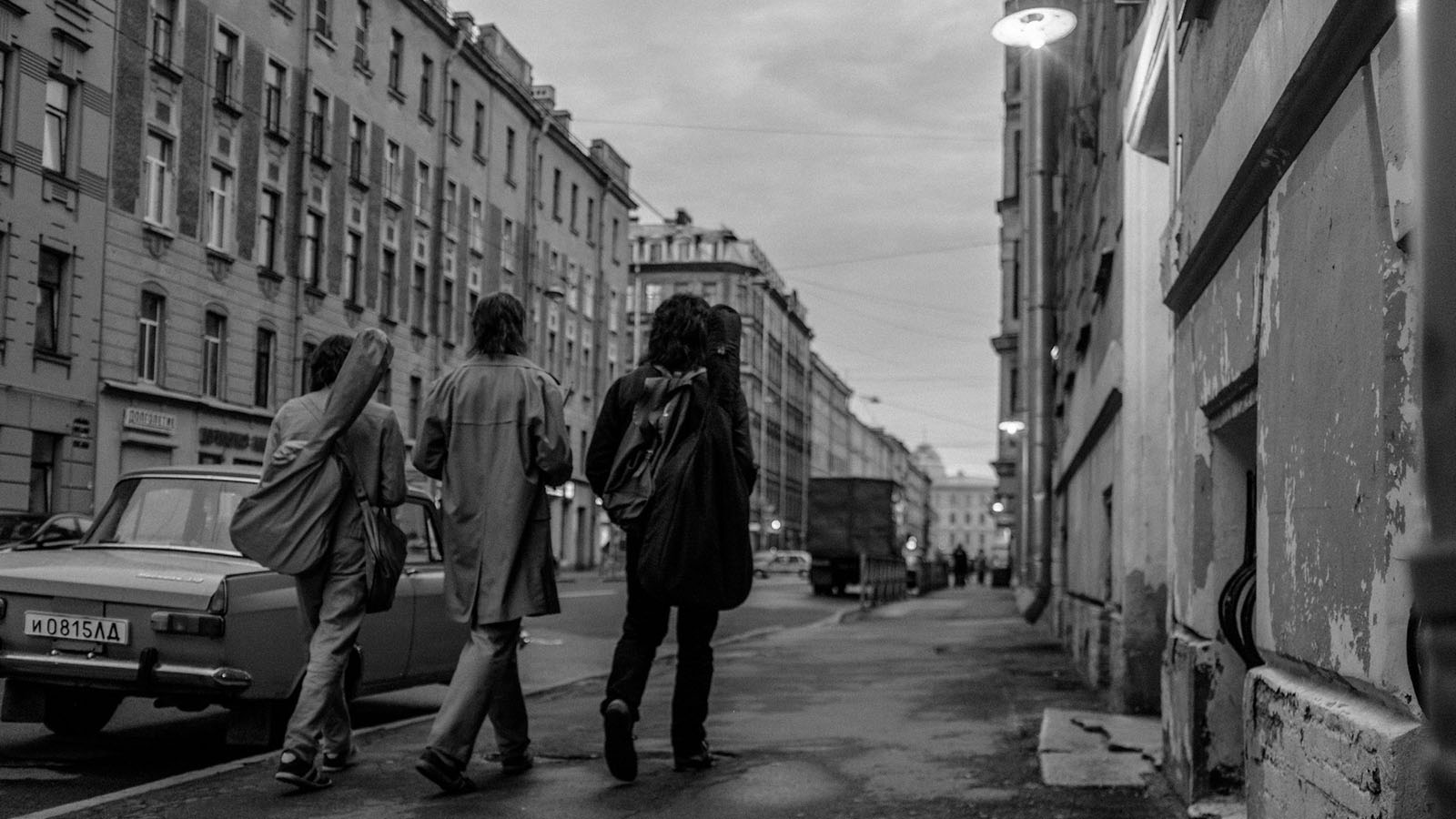Kirill Serebrennikov’s Leto

Leto (Summer), Kirill Serebrennikov’s follow-up to the 2016 Un Certain Regard selection The Student, is loosely based on the lives of Viktor Tsoi and Mike Naumenko, rockers whose reputations swelled in the underground scene of the early 1980s in Saint Petersburg—which at the time, of course, was Leningrad. A first round of reviews shows critics giving this nostalgic Cannes competition entry more or less passing grades.
Tomasso Tocci, whose review for the International Cinephile Society is fairly emblematic of the overall critical reception, calls Leto “a lively, irreverent, rambling, and deeply romantic account of the era, but less of a political statement than it’s being made out to be, presumably as a byproduct of director Kirill Serebrennikov’s recent arrest and prolonged detention (on dubious charges) in Russia. Outspoken but never an overtly political filmmaker, he draws elements from all his previous films and similarly uses the Soviet historical context as just one of many igniters for a highly enjoyable mix of drama, biopic and visual experimentation.”
For Variety’s Guy Lodge, though, Leto is “a bemusing blizzard of assorted characters, styles and songs that often tips over into outright kitsch.” Like a good number of other critics, he also finds that the film “provides outsiders with few entry points to its rather niche milieu. The scene is the star here, and Serebrennikov is more concerned that we experience it than understand it.”
And that’s a feature, not a bug, for Justin Chang in the Los Angeles Times. “Shot in dreamy black-and-white, but punctuated by an occasional hot burst of color, Leto unfolds to the rhythms of its chosen scene, broken by occasional fourth-wall ruptures and archly stylized musical performances. . . . Most of these surreal interludes lack the go-for-broke audacity needed to pull them off and sweep you up, but they’re endearing even in their awkwardness. Leto is undeniably woozy and borderline self-indulgent, which is to say it pretty much nails its moment.”
More from Nicholas Bell (Ioncinema, 3.5/5), Peter Bradshaw (Guardian, 3/5), Dave Calhoun (Time Out, 4/5), Martyn Conterio (CineVue, 3/5), Mónica Delgado (desistfilm), A. A. Dowd (A.V. Club, B-), David Ehrlich (IndieWire, B), Leslie Felperin (Hollywood Reporter), Steve Pond (TheWrap), Bénédicte Prot (Cineuropa), Jonathan Romney (Screen), and Barbara Scharres (RogerEbert.com).
Nicolas Rapold and Eric Hynes discuss Leto in a special Cannes edition of the Film Comment Podcast (37’37”).
In the meantime, Serebrennikov, the renowned former artistic director of the Gogol Center, a theater in Moscow, is one of two filmmakers with work in the competition who are unable to attend because they’re under house arrest in their respective countries. The other, of course, is Iranian director Jafar Panahi. For the Guardian, Gwilym Mumford outlines the circumstances of both of their cases.
Update, 5/27:Lawrence Garcia, writing in the Notebook, finds in Leto “a discursive, shambling portrait so divorced from a sense of emotional reality that it simply dissipates into non-existence.” More from Sophie Monks Kaufman (Little White Lies), Sam C. Mac (House Next Door), and Stephanie Zacharek (Time). And Marina Richter interviews producer Ilya Stewart for Cineuropa.
For news and items of interest throughout the day, every day, follow @CriterionDaily.



